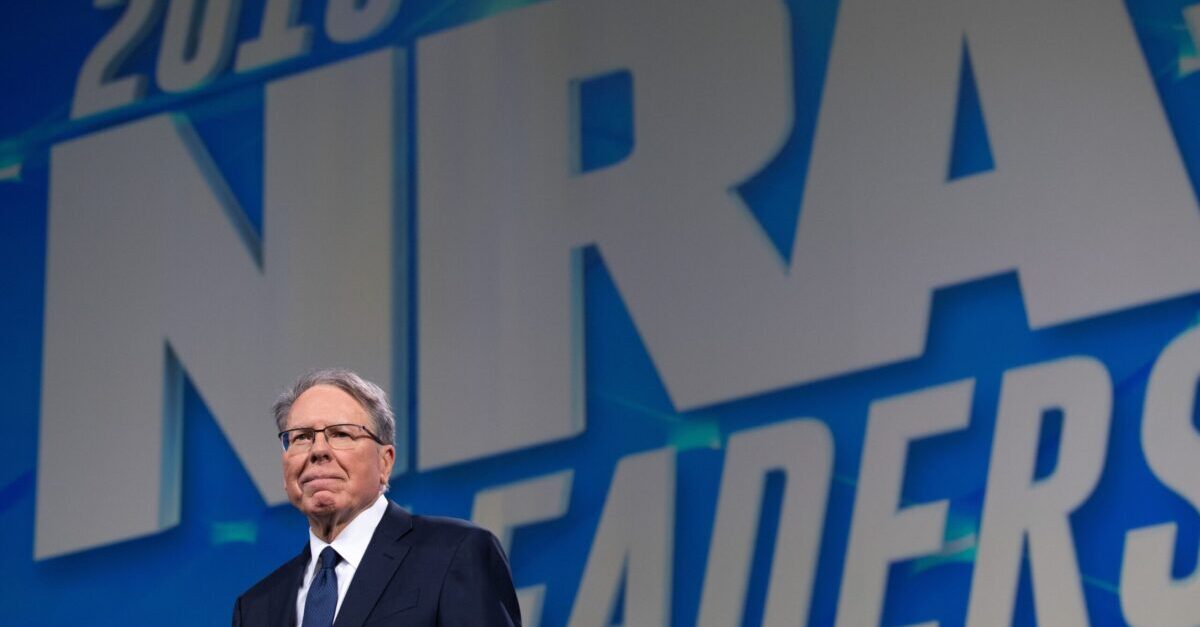
“This case presents an extraordinary and unique set of facts,” the attorney general’s counsel James Sheehan wrote in a 41-page legal brief on Friday.
“In the face of the substantial allegations of illegal conduct in the state in which it is chartered, and a pending enforcement action there, the NRA has decided that it can cross state borders with its assets and open up in a different jurisdiction to evade law enforcement action,” it continues. “It has filed for bankruptcy using a newly formed subsidiary, while claiming to be financially solvent, to avoid regulation in the state where is chartered and subject to oversight.”
Joined with Texas local counsel Gerrit M. Pronske from Spencer Fane, the New York Attorney General’s office noted that the NRA’s website insists that it remains “in its strongest financial condition in years.” The GOP power broker claims that it is “dumping New York” and “utilizing the protection of the bankruptcy court” in order to organize its “legal and regulatory matters in efficient forum.”
The NRA has no offices in Texas but has asserted venue via an affiliate, Sea Girt, LLC, an entity that the attorney general described as a “wholly-owned shell company” established in the Lone Star State three months ago as a “toehold” for the proceedings.
NRA leader Wayne LaPierre, who signed Sea Girt’s papers, has been accused by the attorney general of using the group as his “personal piggy bank,” funding his private jet trips to the tropics and African safaris with donor money. James alleged that other NRA executives pocketed millions for their personal benefit, filing false regulatory filings, awarding no-show contracts to loyalists, and retaliating against whistleblowers.
“LaPierre is accused of looting the NRA, yet he has made the determination and signed the petitions in an effort to use the bankruptcy court to remove the NRA from regulatory oversight,” the attorney general’s motion notes.
Last month, James’s lawsuit advanced as a judge in Manhattan rejected the NRA’s effort to dismiss, pause or transfer the lawsuit.
If the bankruptcy judge allows the proceedings to resume, the attorney general wants a Chapter 11 trustee to be appointed because of the evidence “fraud, dishonesty, incompetence and mismanagement by the debtor’s current leadership.”
“Allegations of such misconduct are set out at length in the 163-page NYAG enforcement complaint,” the legal brief states. “Those allegations are the result of a more than year-long investigation which yielded proof of such misconduct from admissions in sworn testimony from current and former NRA officers and directors, the NRA’s business records, and the NRA’s regulatory filings. Indeed, the NRA confirmed certain of the NYAG’s investigatory findings in regulatory disclosures made in November 2020, after the NYAG commenced the NYAG Enforcement Action. The NYAG enforcement complaint sets out allegations of pervasive and persistent violations of New York laws governing charitable not-for-profit entities, only a sample of which constitute cause for appointment of a trustee.”
The NRA’s counsel William A. Brewer III called the filing “another transparent move in a partisan crusade to shut down the NRA.”
“Obviously confused regarding the facts, Attorney General James claims that Chapter 11 is an attempt to ‘end run’ litigation between her office and the NRA,” Brewer wrote in an email. “That is false. As the Association has said repeatedly, it welcomes the opportunity to litigate these contrived claims and the motives which led to their filing.”
The attorney general’s motion and brief supporting it were filed in the Northern District of Texas on Friday.
Read the NYAG’s legal brief below:
[photo by SAUL LOEB/AFP/Getty Images]